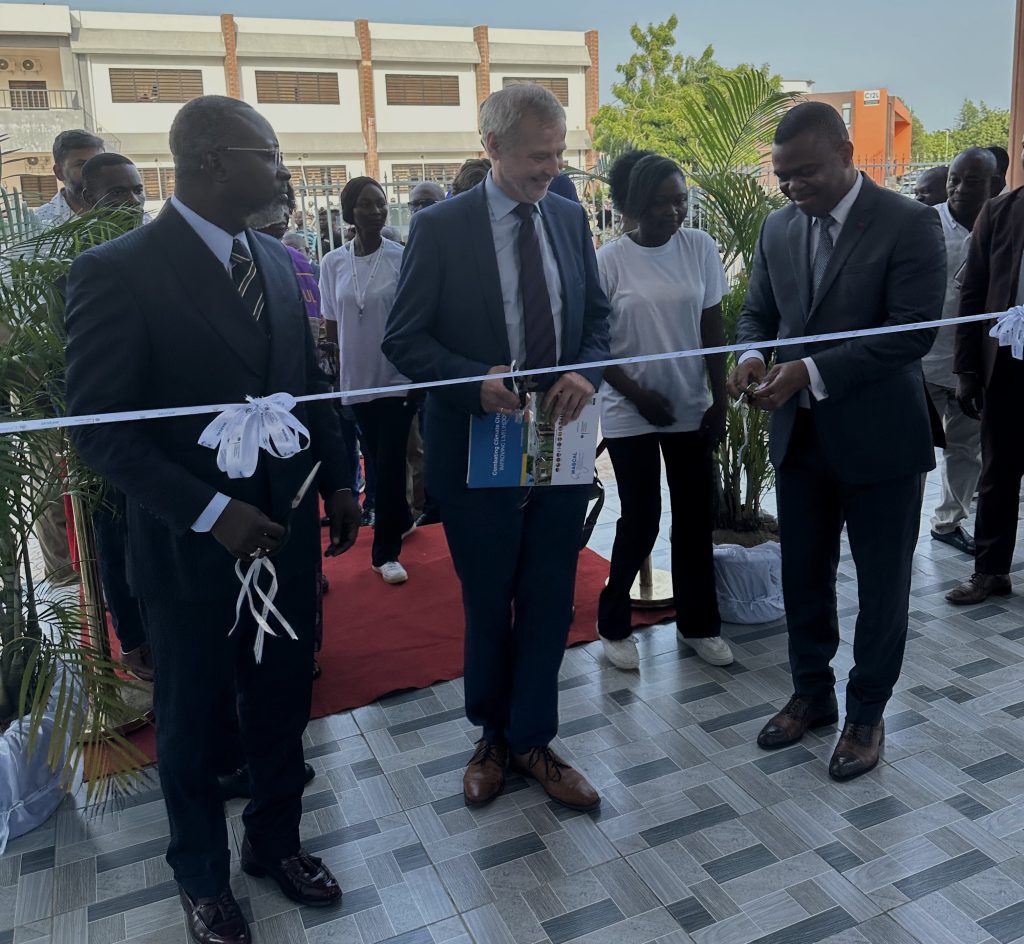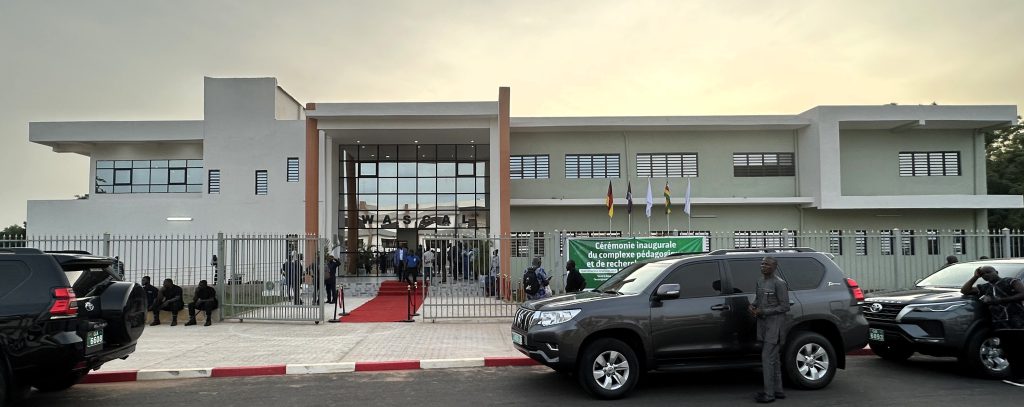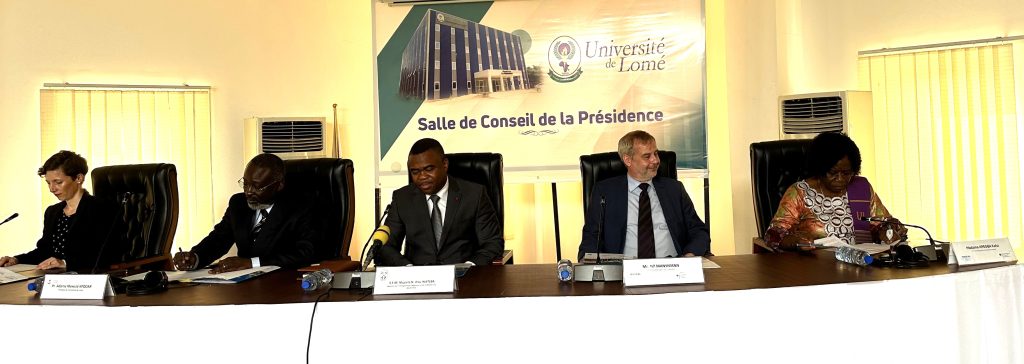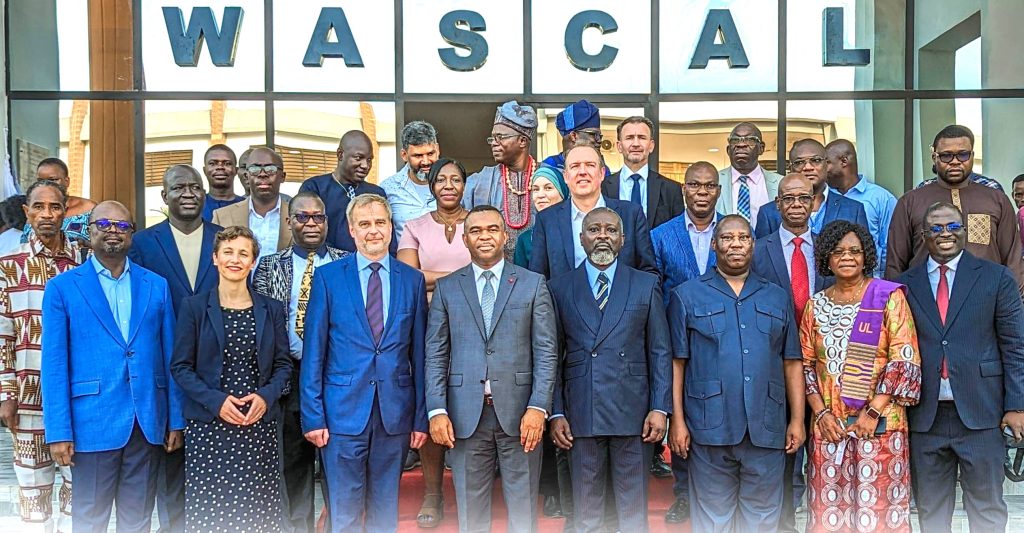
As part of its institutional promise to lead the cause of improving the livelihoods of West Africans through building capacity in climate change, renewable energy, and green hydrogen, WASCAL has officially commissioned its new Academic and Research Complex in Lomé, Togo, with funding from the German Federal Ministry of Education and Research (BMBF).
The building will accelerate capacity building in bioenergy and climate change as it houses WASCAL scholars pursuing a master’s programme in Energy and Green Hydrogen as well as PhD in Climate Change and Disaster Risk Management. This milestone signifies a major leap forward in the collective journey towards climate resilience and sustainable energy solutions for West Africa.
Speaking at the event, the Executive Director of WASCAL, Prof. Emmanuel Wendsongré Ramdé, outlined the vision for the innovative hub:
“We are also here to celebrate the establishment of a regional laboratory on Biomass for West Africa, reinforcing our commitment to innovative climate change solutions. The launch of this building will serve as a hub for innovation and collaboration in climate change and green energy. With cutting-edge infrastructure and a dedicated team of researchers, this complex will play a pivotal role in accelerating sustainable energy solutions across the region.”
He also reflected on the remarkable achievements of WASCAL within the region, while calling on partners to work together to build a sustainable future for West Africa:
“The commissioning of this new complex represents a significant milestone in our shared efforts to support West Africa’s energy transition and combat climate change. Our partnership with the Republic of Togo and the University of Lomé, has been one of our most successful endeavours. As we celebrate this innovation, it is important to reflect on these achievements that have brought us here. One of such accomplishments is the WASCAL Green Hydrogen scholarship programme. Let us seize this moment to intensify our commitment to transitioning from fossil fuels to clean energy.”
In his remarks, the Commissioner for Green Hydrogen in Germany, Mr. Till Mansmann, expressed optimism about the future of the edifice:
“With this edifice, you are supporting the local economy. With the new laboratory, you are enabling new economic utilization opportunities for biomass – for local players from agriculture, trade, handcrafts, and service providers. You are also creating a variety of jobs: laboratory technicians, scientists, and administrative staff will work here.”
He further emphasized the importance of international cooperation in achieving a common goal:
“The new laboratory will use state-of-the-art analytical techniques. These will enable research into the energetic use of biomass at an international level and by globally recognized standards. We need strong strategic partnerships at the international level to mitigate climate change and promote climate adaptation. International cooperation is the key – we need sustainable solutions for all regions, countries, and continents.”
Dr. Komi Agboka, Director at the WASCAL Graduate Studies Programme in Togo, expressed delight at the collaborative effort between the university and BMBF through WASCAL to ensure a successful completion of the building.
The building was inaugurated jointly by Mr. Mansmann and the Togo Minister of Research and Higher Education, Prof. Majesté N. Ihou Wateba, in the presence of the Head of Green Hydrogen at BMBF, Prof. Christoph Rovekamp, the University President, Prof. Adama Mawulé KPODAR, WASCAL Executive Director, Prof. Emmanuel Wendsongré Ramdé, among others.




